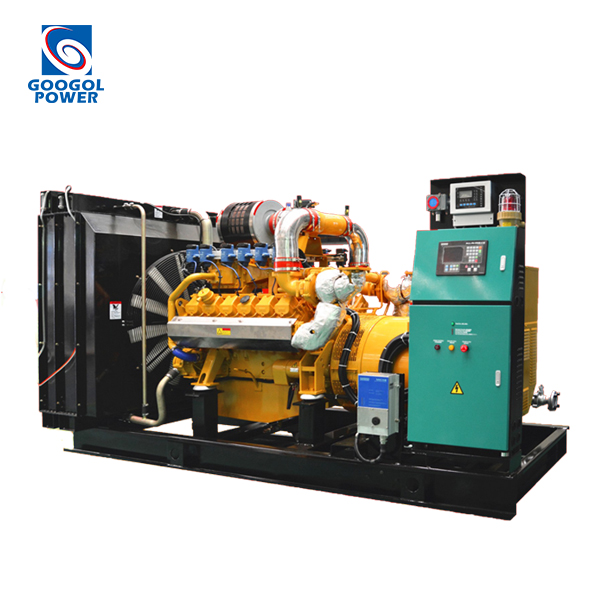- HOME
- ABOUT GOOGOL
- PRODUCTS
DIESEL ENGINE
GENERATOR SETS
- DOWNLOAD
- CASES
- NEWS
- CONTACT US
DIESEL ENGINE
GENERATOR SETS

The operating temperature of a gas engine is one of the important parameters that customers pay attention to when purchasing.Generally speaking,the operating temperature of a gas engine involves multiple key components,including the combustion chamber,exhaust system,cooling system,and lubrication system.The operating temperature range of gas engines of different types and powers will also vary.
Firstly,the combustion chamber temperature is usually high,typically between 1200-1600°C,depending on the type of gas and the combustion efficiency of the engine.The combustion characteristics of different fuels such as natural gas,biogas,and liquefied petroleum gas are different,resulting in slight differences in combustion chamber temperature.In addition,factors such as the compression ratio,ignition method,and mixture ratio of the engine can also affect the temperature of the combustion chamber.

Secondly,exhaust temperature is one of the important indicators for measuring the working condition of gas engines,usually between 400-700°C.A higher exhaust temperature may indicate low combustion efficiency or excessive engine load,while a lower exhaust temperature may indicate insufficient combustion.Excessive exhaust temperature may affect the lifespan of components such as exhaust valves and turbochargers,therefore it needs to be controlled reasonably.
Furthermore,the temperature of the cooling system is usually maintained between 80-110°C,mainly to prevent engine overheating and improve operational stability.Gas engines typically use water-cooled or air-cooled methods to ensure that the temperature of the cylinder block and cylinder head is maintained within a reasonable range,in order to extend engine life and improve fuel efficiency.If the temperature of the cooling system is too high,it may cause the engine to overheat,affect sealing performance,and even damage components.
In addition,the temperature of lubricating oil is generally controlled at 70-110°C.The function of lubricating oil is to reduce the friction of internal components of the engine,while also providing a certain cooling effect.Excessive temperature can cause the lubricating oil to deteriorate,affecting the lubrication effect,while low temperature may lead to excessive viscosity of the oil,affecting engine start-up and operation.
Overall,the operating temperature control of gas engines has a significant impact on their performance,combustion efficiency,emission control,and service life.When customers choose gas engines,it is recommended to pay attention to the cooling system design,exhaust temperature management,and lubrication system configuration of the product to ensure that the engine maintains a stable operating state during long-term use.